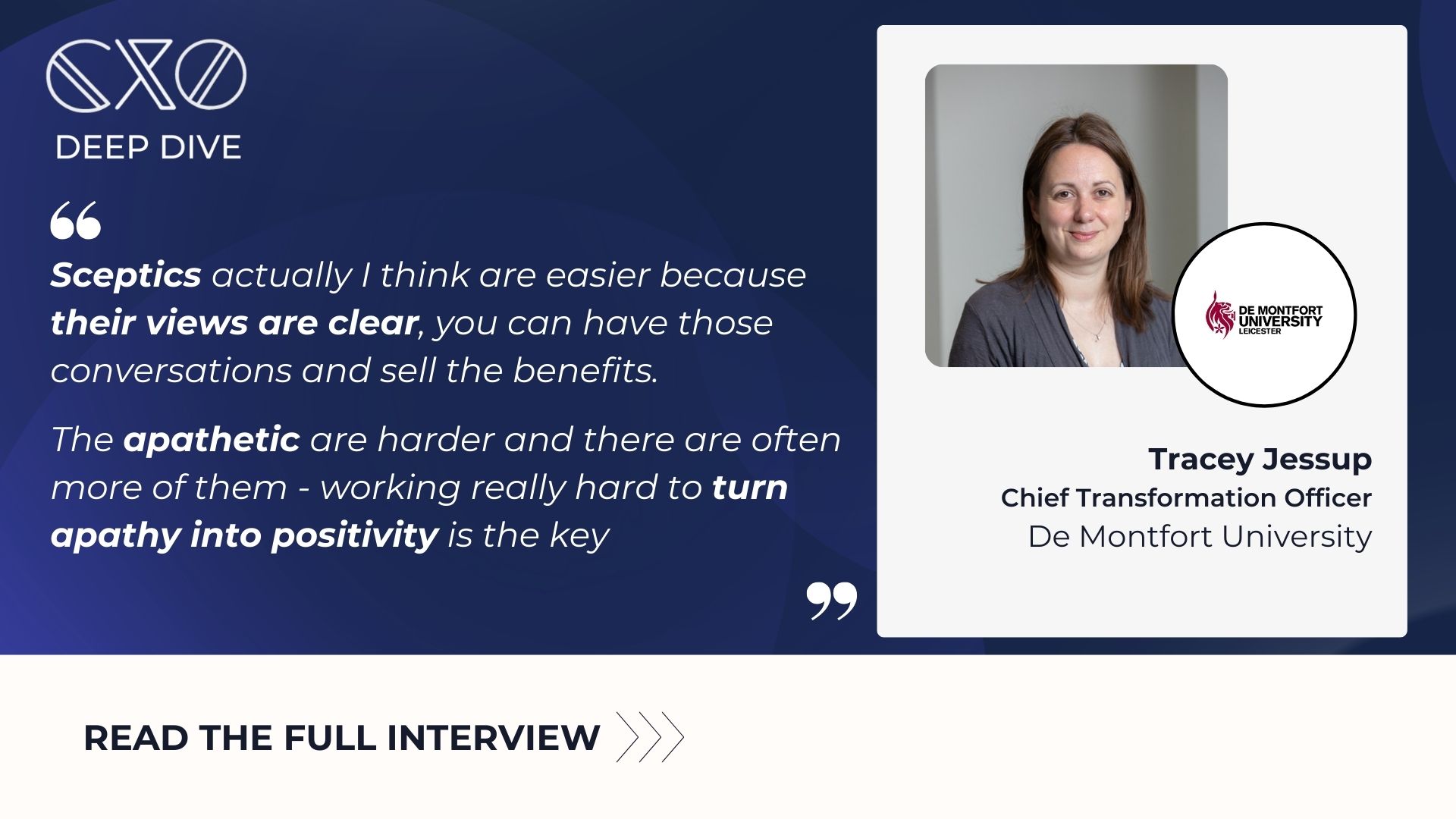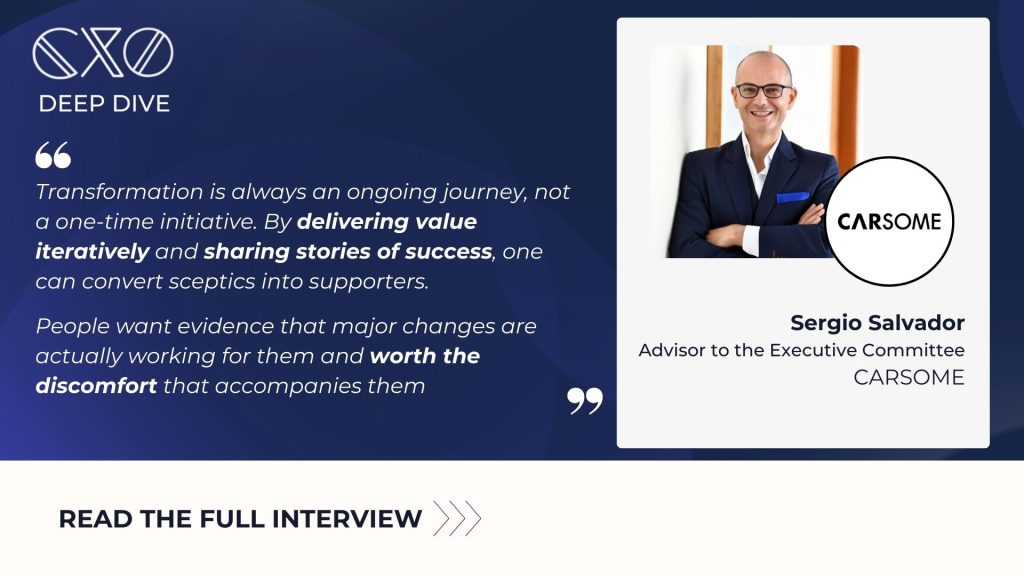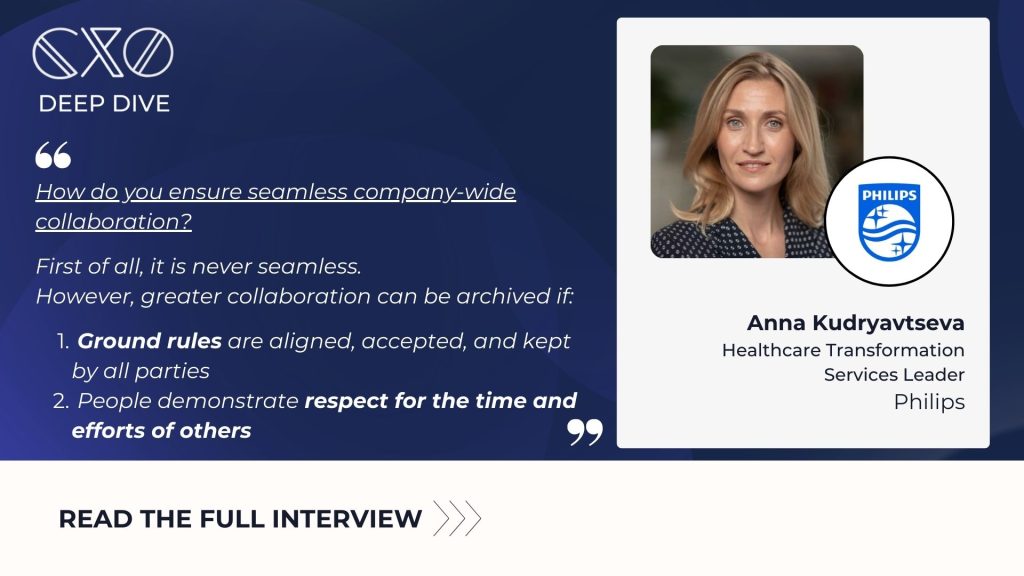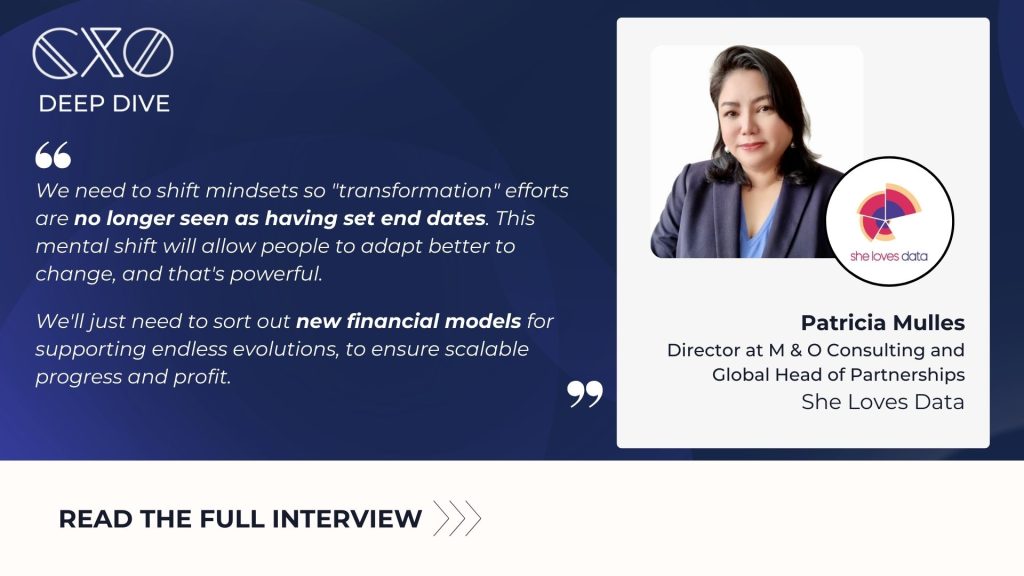Tracey Jessup, Chief Transformation Officer, at De Montfort University, shares her insights and experiences on Organisational Transformation, Future Trends & Transformation Leadership as part of the CXO Deep Dive series.
How would you explain your job to a 5-year-old?
I’m here to make sure things get better and easier, for our employees and our students.
“There is no digital transformation, just transformation.” Do you agree or not? Why?
I do agree that digital transformation is business transformation. It isn’t, or shouldn’t be, something separate. At De Montfort, the digital transformation strategy is an enabling strategy supporting our overall Empowering University Strategy and ensuring we can reach its aims.
What are the top challenges in your business transformation process?
At the end of the day it is all about people. They are our greatest asset, but we need to bring them with us, equip them with the right skills and the mindset to constantly be improving and changing business process to fit what is needed.
“It’s crucial to deliver and communicate benefits fast, to build momentum and confidence in transformation projects where there might be scepticism.” Do you agree? Or you have other thoughts on the timeline of a transformation project?
Transformation needs to have a firm foundation, and building out those foundational elements can take time. Going for a benefits fast approach can mean you haven’t been able to make sure the change will last. I do agree though that some benefit needs to be upfront, and starting small and proving value is a good way to deliver this, demonstrating the “green shoots” of what will in time be a wider and more fundamental change.
What do you think is the biggest challenge organisations face in the adoption of AI?
Lack of understanding about how to use it to enhance a business
Do you expect certain uses of technology to decline in the near future?
People have been predicting email will go for about the last 10 years and it is still here! Weaning people off of things is hard.
Do you see transformation as a distinct skillset, best delivered by “Transformation Experts”, or is it better to be led by the core business?
I think it can’t be separated from your core business, but the delivery of transformational change is a skill. So a mixed-team approach is best, to ensure the longevity of what you do. Key to that longevity is the culture and mindset piece and ensuring that people see what is in it for them to continually improve and evolve the business.
How do you pick the right partners to accelerate digital transformation?
Having partners who work on specific pieces of work which we have shaped is the best way. Then it is owned in the business itself.
How do you ensure seamless company-wide collaboration?
I think this comes down to “what is in this for me”. There have to be benefits to people working differently and across teams. It helps if your strategy sets out those end-to-end goals, for us, student experience is hugely important and that is a cross-team effort
What aspect(s) of business should organisations prioritise during digital transformation? Why?
You need the best-fit technology that you can afford in your context, but before you go and get that you need to understand “why”. So taking a problem-solving approach to the most important issues and involving people across the business is key. And that comes back to creating the right culture and mindset, which is easier to do when there is “doing” involved.
What is the best way to incorporate agile ways of working to accelerate transformation?
Many organisations are very waterfall and it is embedded into every part of their process. So start small and be open and clear that this will be different. And then communicate constantly about the benefits and challenges of taking that approach.
How do you achieve successful change management and shifts in culture, mindset and behaviours to adopt new digital tools?
Where we are starting is in supporting people to have the confidence with the digital tools that they have today. We have just launched a call to action to create a champions network, we will invest in them and their skills, and they will help people in their areas to feel more confident.
What do you ultimately do with people that do not want to change?
Sceptics actually I think are easier because their views are clear, you can have those conversations and sell the benefits. The apathetic are harder and there are often more of them – working really hard to turn apathy into positivity is the key.
How do you keep pace with rapid obsolescence in technology? How do you figure out stuff that will be relevant from a future perspective and have longevity from an investment perspective?
This has to be around flexibility and understanding of where you want to make long-term investments and where shorter-term commitments make more sense. For a university for instance student records are our bedrock and that has to be a long term investment, so looking at the Cloud adoption and modernisation plans of the providers is an important thing to be doing.
How do you decide a change would be beneficial rather than disruptive?
It can be both. But too much disruption isn’t good. So to me this is about managing complex change effectively and making it as easy as possible for people to adopt new working practices.
What technologies will surely impact the business world & our daily life in 2024 / 2025? Generative AI, Metaverse, Web 3.0, IoT, 5G / 6G or others?
We are already seeing employers wanting our students to have skills with Generative AI – in fashion for instance. 6G is something we are just beginning to think about being prepared for.
How is your industry preparing for an AI-Centric world?
Universities are thinking about the impact on careers and employability and therefore on course content and teaching, and in some areas it is already becoming more used in the workplace such as fashion.
How has your approach to transformation changed due to new tools and solutions?
You constantly have to be curious – to look around you and see what others are doing and what is emerging
Do you see automation as a path to drive operational efficiencies and ultimately save cost?
Absolutely but you have to get the business process right first
Can you give an example of how you’ve engaged with front-line staff at the outset of a transformation project, the approaches you took, and the outcome?
When the DMU Digital Transformation Strategy was agreed I did open meetings for all staff on why the strategy was like it was and their part in it. We then asked staff and students to collaborate with us on a set of personas and feels-like statements to make it more real for them what the impact of strategy delivery would be
What are the challenges your organisation faces on people up-skilling, which becomes one of the basic needs to drive complex transformation?
How to enable that upskilling at scale is part of the challenge, hence our Champions programme. We also have to provide curated journeys on self-led study, we have started doing this with LinkedIn learning resources
What are the typical aspects that undermine a transformation position?
Apathy, and people saying “but we have always done it like this”. True transformation takes real commitment from across the business.
If successful transformation is done diplomatically and in the background, how do you avoid the risk of it not being sufficiently valued by the company?
I think you have to talk openly, and share the successes and the obstacles
What other aspects during transformation need to be addressed beyond digital competence?
As I have said throughout – mindset. Developing a growth mindset in employees is transformational in itself
Do you have any advice on how to create an environment for employees to share more?
Create the opportunities for it – have sharing events, lunch and learns, communities of practice, blogs
What technology / solution would you invest in if you were an Angel Investor?
Sustainable energy and getting to a price point where we aren’t reliant on oil
What’s the best advice someone has ever given you regarding transformation?
Keep that optimism bias, some of it will pay off!
A big thank you to Tracey Jessup for sharing the insights on Organisational Transformation, Future Trends & Transformational Leadership!
Visit our content library for more insights from the CXOs: https://cxoinnovation.com/content-library/
Join our LinkedIn CXO Community.
